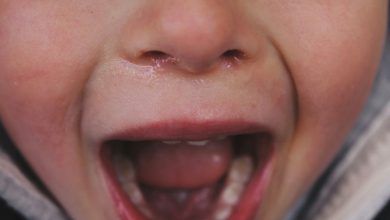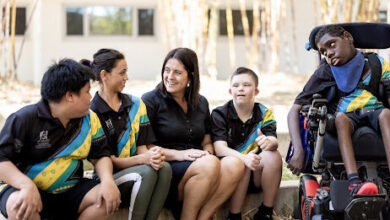“Educational transformation” incoming? NZSTA praises new legislation
New Zealand School Trustees Association has announced support for Hipkins' update to Education and Training Act 2019 and a new Māori education strategy.

“The system update contained in the Education and Training Act 2019 has been a long time coming,” argues the New Zealand School Trustees Association after welcoming news that new legislation has passed its third reading as schools around the country to observe Matariki / Puanga, the traditional season of renewal.
The new legislation focuses on more robust consultation and collaboration to strengthen the connections between boards of trustees, their principals and staff, their school communities and Ministry officials.
Many of the best parts of the system remain unchanged, including the role school boards of trustees have as elected officials, representing their local community and governing their local school. Boards will be expected to work with their communities and staff to give effect to the Treaty of Waitangi, and to reach a workable understanding of the balance between behaviour management and being a genuinely safe and inclusive school for every student.
“As Minister Hipkins has acknowledged in the House, the Act is not necessarily perfect – but there is truth in the saying that ‘perfect is the enemy of good’,” says NZSTA President Lorraine Kerr. “Everything has its season, and everything evolves, including our ideas about what’s good enough for our children and young people in terms of their education. Matariki is the perfect time to be marking the next stage in our evolution.”
The Bill brings all key legislation on early learning, schooling and tertiary education into a single statute, and is a result of two years of intensive consultation with parents, students, teachers, education leaders and the wider sector about what education in New Zealand should look like in the 21st century.
Changes in the Bill include:
- supporting the right of all children to attend school fulltime
- improving the quality and viability of early learning and home based education services
- creating dispute resolution panels to help learners and whānau resolve serious disputes with their schools on issues such as enrolment and attendance, safety, learning support, racism, and bullying, where these cannot be resolved at school level
- introducing a minimum code of conduct for Board members, and minimum appointment criteria for new principals
“Other changes are being made to the Bill as it stands. One of the main ones relates to the restrictions on the use of ‘physical restraint’,” Education Minister Chris Hipkins said. “The change follows concern from many submitters about some of the proposed changes, and in particular the change in terminology to ‘physical force’. The Government has worked collaboratively to address these concerns, with some input from the teaching profession and the disability community, and has agreed to return to ‘restraint’ as the most appropriate term to use in the Bill.
“Any restraint must be reasonable and proportionate. I expect that it’s only used to prevent physical harm or significant emotional distress to a student or another person and only where staff believe there is no other alternative.
“The changes also specify that staff members authorised to use physical restraint must be trained, and set out what must be in the rules and guidelines that the Ministry of Education develops, including a framework for prevention and de-escalation, to further support our educators.
“To allow our educators the time to prepare, many of the proposed changes do not take effect immediately. Supports are already in place to help with the changes, and more are coming. For example, over 600 new Learning Support Coordinators are in our schools and soon, 40 new Curriculum Leads will be helping deliver a high quality Health and Physical Education curriculum, including wellbeing and mental health.
“The Ministry is also assisting schools to give effect to Te Tiriti. Te Hurihanganui helps educators learn about what makes for Maori education success, and Te Ahu o Te reo Māori supports the more effective use of Māori in the classroom.”
The Bill’s rewrite is long overdue. Indeed one Education Act, parts of which are still in force, dates to 1964 – when the Beatles toured New Zealand.
A refreshed and re-energised Māori education strategy is launching as schools are working on their post-lockdown planning and evaluation.
“Supporting the kaupapa of Māori succeeding as Māori is core business for school boards of trustees,” says NZSTA President Lorraine Kerr. Providing opportunities for Māori and non-Maori students to learn te reo Māori is a critical part of that kaupapa.
“NZSTA has taken an active role over recent years in challenging boards to do better for their Māori students and communities, and we are very optimistic that the bottom line is shifting. Ka Hikitia has been an important part of generating the conversations and self-reflection that allow these changes to take place.
“Over the past few years especially we’ve seen a growing understanding that it’s not possible for boards to be effective unless we are providing equitable experiences and outcomes. We’re seeing this through requests for resources, the conversations that take place in our at our conferences, for example.
“With that recognition, we’ve seen increasing interest in resources to help boards and their principals embed the kaupapa of Ka Hikitia as a uniting theme across the school’s vision, strategies, relationships and curriculum delivery.
“Ka Hikitia is the best tool schools could ask for in terms of helping them understand their responsibilities under the Treaty of Waitangi. Tau Mai te Reo – the Māori Language Strategy is an integral part of that kaupapa,” she says
“Working with Ministry officials and a range of other stakeholders to refresh Ka Hikitia has been a high spot for NZSTA over recent months, and they are to be congratulated.
“With this refresh the challenge is to take the seed of understanding we’ve planted in the last few years and grow it into a strong and vibrant change in the way we do things.”









